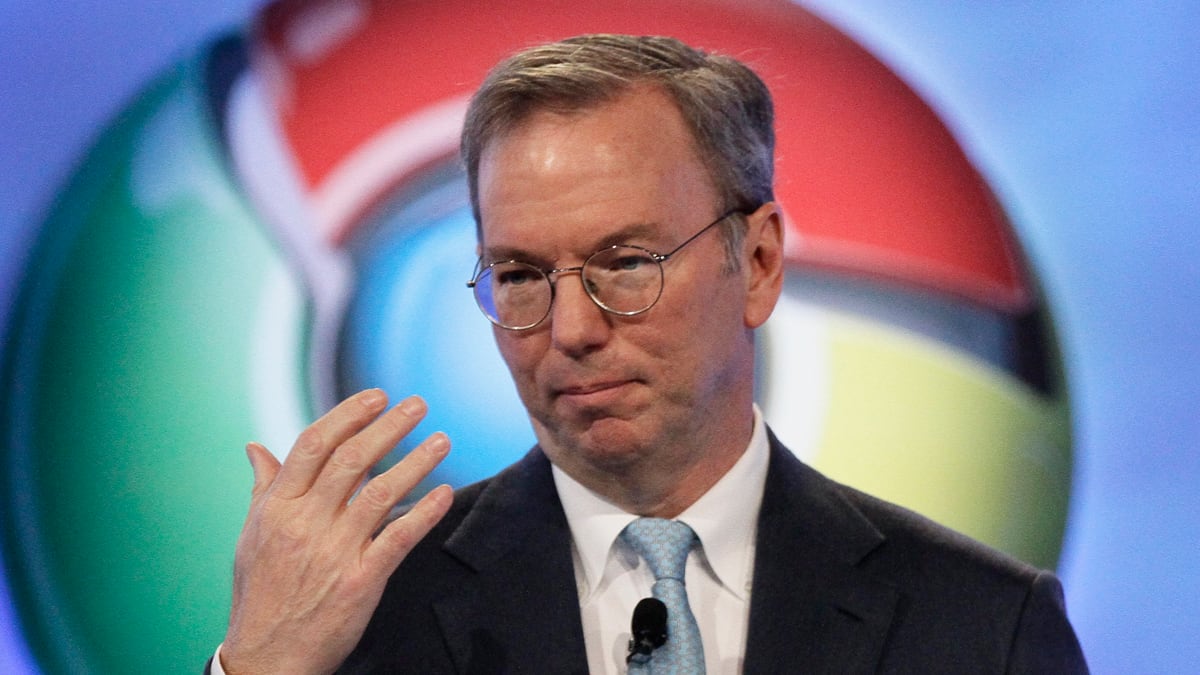If Google suddenly finds itself on the defensive in Barack Obama’s Washington, it’s not for lack of effort.The company has ramped up its Beltway lobbying and donated big bucks to Democrats, as Executive Chairman Eric Schmidt has dined privately with the president and appeared on a rumored short list for Commerce secretary.
None of that has prevented the Federal Trade Commission from moving to issue subpoenas to the online search giant, which could potentially lead to a wide-ranging antitrust investigation of the kind that bedeviled Microsoft during the Clinton administration. The FTC, whose plans were reported by The Wall Street Journal, made the decision independently without consulting the White House, knowledgeable sources say.
The commission is examining Google’s search and advertising business, which provides the bulk of its revenue, leading some tech executives to wonder why Google couldn’t quietly resolve the request for documents rather than take the PR hit from headlines about subpoenas.
Two government officials familiar with the case cautioned that the FTC’s action is an early step in what is likely to be a prolonged inquiry into how Google uses its dominance to boost its market share. The subpoenas would follow several months of informal discussions between the agency and Google in which information is exchanged about various company practices, the officials said.

Sheila Krumholz, executive director of the Center for Responsive Politics, a Washington nonprofit that tracks contributions and lobbying, says Google is well prepared for battle.“They’ll be ready for just about anything now that their interests are threatened and they’re in the government’s crosshairs,” she says. “They have gone from a political nonentity to rank among the Microsofts, Hewlett-Packards, and Oracles of the world. All of this will be to Google’s benefit in a potential battle with the FTC.”
In 2002, Google spent no money on federal lobbying. Last year, according to CRP figures, the company paid out more than $5 million in lobbying fees, and an additional $1.5 million in the first four months of this year—a 17-fold increase in less than a decade. The 2011 expenditures include $90,000 to the well-connected Podesta Group, headed by veteran Tony Podesta, a former congressional official and Democratic campaign aide.
Last year, the center says, Google employed 57 lobbyists, 51 of which were government officials before passing through the capital’s infamous revolving door.
Google officials and family members made $3.4 million in campaign donations over the last three election cycles, mostly to Democrats, according to records. But the company also hedged their bet in 2010, contributing $10,000 each to House Democratic leader Nancy Pelosi and GOP leaders John Boehner and Eric Cantor. In fact, as Republicans moved toward capturing the House last year, the Google donors steered 55 percent of their contributions to the GOP, up from 42 percent the previous year. The company’s PAC kicked in additional $340,000 to federal candidates.
In December, Schmidt, then the company’s CEO, was among 20 corporate executives invited to meet with the president at Blair House, across from the White House, for a discussion of taxes, trade, and other economic issues. Last summer, Schmidt was among a handpicked group that dined with Secretary of State Hillary Clinton.
Obama visited Google’s Mountain View, California, headquarters as a candidate in 2007. “What we shared is a belief in changing the world from the bottom up, not from the top down,” Obama said.
Google employees donated about $800,000 to Obama’s presidential campaign, a total exceeded only by staffers at Goldman Sachs and Microsoft, according to Krumholz’s OpenSecrets.org.
Schmidt campaigned with Obama in the final weeks of the 2008 election, saying he was making a personal endorsement and that the company was officially neutral. Google helped defray the costs of the transition after Obama’s election, with Schmidt one of six company officials who donated a total of $14,700. Schmidt soon opened his checkbook again, one of several company executives to kick in $25,000 apiece toward the inauguration. Little wonder, then, that a Money magazine article in the administration’s first year was headlined “Obama & Google (a love story).”
Google had no comment on the trade commission probe. One industry watcher is baffled by Google’s conduct. “When it comes to how Google handled Congress and the FTC, I look at that and say boy that’s something Microsoft would have done 15 years ago,” this person says, meaning the company opted not to play nice with investigators behind the scenes. A Microsoft staffer who asked not to be identified says the situation is striking “for a company like Google that talks about openness and transparency.”
Industry executives who admit to antagonistic feelings toward Google say they questioned the way the news was broken, with the Journal citing anonymous sources. “The timing of this leak, the fact that it’s so specific about subpoenas, means it most likely came from the FTC, which usually won’t confirm any investigation unless the person or entity under investigation talks publicly about it first,” says another Microsoft staffer.
A Senate Judiciary subcommittee headed by Wisconsin’s Herb Kohl has been trying for months to get Schmidt or Google cofounder Larry Page to testify about antitrust issues. Instead, the company offered its counsel, David Drummond, to the panel. The Google executives likely would have faced questions about the FTC inquiry, as well as a criminal investigation described by the Journal as examining whether Google improperly profited from ads for drug sales by pharmacies or people without the proper licensing.
Now it won’t take much of an online search to find negative stories about Google, at least until these investigations are resolved.







